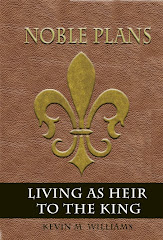Few in this world are as honest about their pain as King David was. Consider for example, “I am poured out like water, and all my bones are out of joint; my heart is like wax; it is melted within me. My strength is dried up like a potsherd, and my tongue cleaves to my jaws; and Thou dost lay me in the dust of death” (Psalm 22:14-15, NASB).
Ever feel like that?
I wish there was an easy out, a quick fix for pain, but on the whole there are none. Yes, there are miracles that inject themselves into our world, but they are far and few between, the purview of the King of kings and his omniscient will. We may want God to remove our pain, but what if there is something the Lord wants us to learn from it, some treasure that would be missed by its elimination? Which is more important: feeling good or being faithful?
A. W. Tozer wrote: “We know that the emotional life is a proper and noble part of our total personality. But by its very nature, it is of secondary importance, for religion lies in the will, and so does righteousness. God never intended that such a being as mankind should become the mere plaything of his or her feelings.”
Jim Gorrell, a pastor friend of mine once said, “The real question about pain is, ‘How well do we suffer?’” That stopped me in my tracks and I have pondered it ever since.
Suffering is not a popular position in which to be – but it is a realistic one. Rev. Gorrell’s question offers no fix, and it does not make the problem go away, but it does shake the foundations of how you perceive and can deal with pain.
How well do you suffer?
David’s noble response to pain was to speak his heart and then praise God. His enemies were still at the door. His son was still usurping the crown. His people still railed against him. But David, a man after God’s own heart, knew the appropriate and righteous response to private pain – praise and worship. The book of Psalms is replete with example after example.
Now that you know the biblical response . . . what is your noble response?
 |
“The noble man makes noble plans and by noble plans he stands”





1 comment:
To realize that messiah is our example of how to suffer, from leaving heaven to going back should make one think about how we suffer. To see that the ultimate "pain" was not the cross itself albeit that was painful, it was not because of that he cried out. He cried out because he knew that the essence of the Father had left. It is a matter of degrees and no one suffers more or less than the other. it's not about what i am suffering but why and how well.
Rev. J.G.
Post a Comment